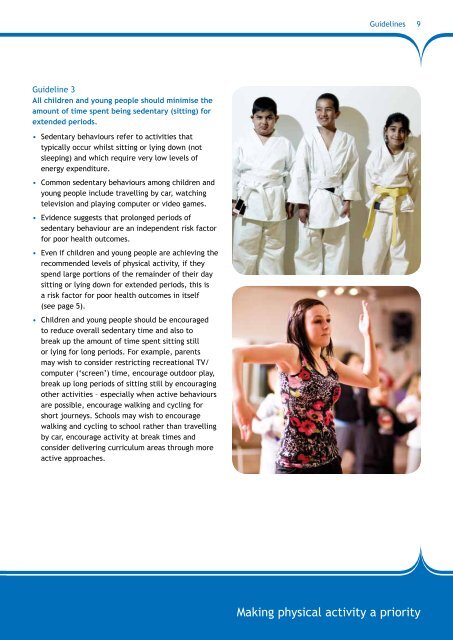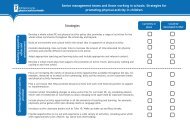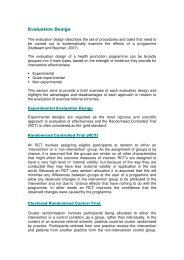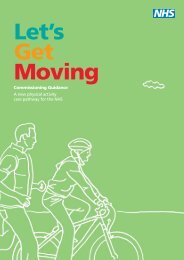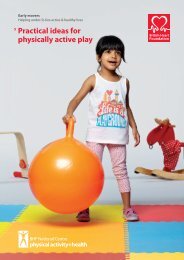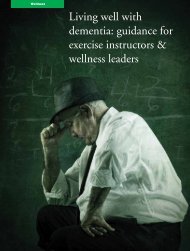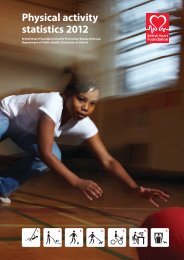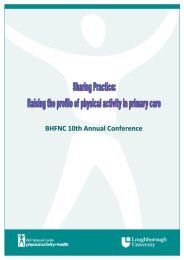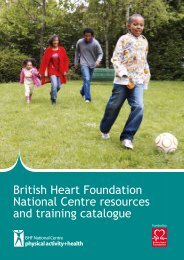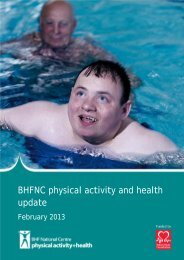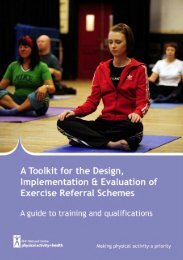Interpreting the UK physical activity guidelines for children and ...
Interpreting the UK physical activity guidelines for children and ...
Interpreting the UK physical activity guidelines for children and ...
Create successful ePaper yourself
Turn your PDF publications into a flip-book with our unique Google optimized e-Paper software.
Guidelines<br />
9<br />
Guideline 3<br />
All <strong>children</strong> <strong>and</strong> young people should minimise <strong>the</strong><br />
amount of time spent being sedentary (sitting) <strong>for</strong><br />
extended periods.<br />
• Sedentary behaviours refer to activities that<br />
typically occur whilst sitting or lying down (not<br />
sleeping) <strong>and</strong> which require very low levels of<br />
energy expenditure.<br />
• Common sedentary behaviours among <strong>children</strong> <strong>and</strong><br />
young people include travelling by car, watching<br />
television <strong>and</strong> playing computer or video games.<br />
• Evidence suggests that prolonged periods of<br />
sedentary behaviour are an independent risk factor<br />
<strong>for</strong> poor health outcomes.<br />
• Even if <strong>children</strong> <strong>and</strong> young people are achieving <strong>the</strong><br />
recommended levels of <strong>physical</strong> <strong>activity</strong>, if <strong>the</strong>y<br />
spend large portions of <strong>the</strong> remainder of <strong>the</strong>ir day<br />
sitting or lying down <strong>for</strong> extended periods, this is<br />
a risk factor <strong>for</strong> poor health outcomes in itself<br />
(see page 5).<br />
• Children <strong>and</strong> young people should be encouraged<br />
to reduce overall sedentary time <strong>and</strong> also to<br />
break up <strong>the</strong> amount of time spent sitting still<br />
or lying <strong>for</strong> long periods. For example, parents<br />
may wish to consider restricting recreational TV/<br />
computer (‘screen’) time, encourage outdoor play,<br />
break up long periods of sitting still by encouraging<br />
o<strong>the</strong>r activities – especially when active behaviours<br />
are possible, encourage walking <strong>and</strong> cycling <strong>for</strong><br />
short journeys. Schools may wish to encourage<br />
walking <strong>and</strong> cycling to school ra<strong>the</strong>r than travelling<br />
by car, encourage <strong>activity</strong> at break times <strong>and</strong><br />
consider delivering curriculum areas through more<br />
active approaches.<br />
Making <strong>physical</strong> <strong>activity</strong> a priority


